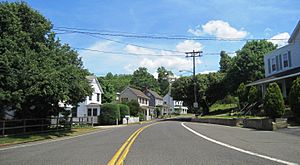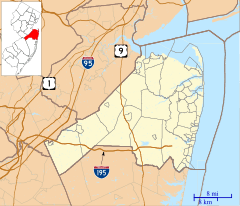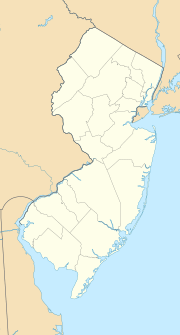Hornerstown, New Jersey facts for kids
Quick facts for kids
Hornerstown, New Jersey
|
|
|---|---|

Center of Hornerstown
|
|
| Country | |
| State | |
| County | Monmouth |
| Township | Upper Freehold |
| Elevation | 89 ft (27 m) |
| GNIS feature ID | 877255 |
Hornerstown is a small place in New Jersey, United States. It's called an unincorporated community. This means it's a group of homes and businesses that are part of a larger area, like a township, rather than having its own separate local government. Hornerstown is located within Upper Freehold Township in Monmouth County. It's close to another community called Cream Ridge. People living here use the 08514 ZIP code for mail.
What is Hornerstown Like?
Hornerstown is mainly centered around the meeting point of Hornerstown-Arneystown Road and Main Street. Both of these roads are part of Monmouth County Route 27. The area has many houses. You'll also see lots of horse farms, especially to the west of the community. Some small businesses are located along nearby main roads like CR 537 and CR 539.
A Bit of History
Long ago, Hornerstown used to have a stop on the Pemberton and Hightstown Railroad. This was a train line that helped people and goods travel. Today, the old path where the train tracks used to be has been turned into a walking and biking trail. It's now known as the Union Transportation Trail.
Discovering Ancient Life
Hornerstown is famous among scientists for something very special. It's the "type locality" for the Hornerstown Formation. This is a specific layer of rock that is full of fossils! This rock layer is known for having a lot of glauconite. Glauconite is a green mineral, so the rock layer is often called a "greensand" layer. What makes it even more amazing is that this layer of rock sits right on top of the K-Pg boundary. This boundary is a thin layer of rock that shows us where a huge event happened about 66 million years ago. This event caused many types of plants and animals, including most of the dinosaurs, to disappear from Earth. Scientists study the Hornerstown Formation to learn more about this important time in Earth's history.
 | Bayard Rustin |
 | Jeannette Carter |
 | Jeremiah A. Brown |




